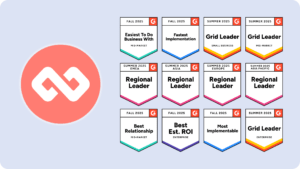The need for guidance and support in our personal and professional lives has become more crucial than ever. Traditionally, mentors have played a significant role in providing guidance and imparting wisdom to their mentees. However, a new trend has emerged – the rise of peer mentors and accountability partners. These unconventional forms of mentorship have proven to be more effective in several aspects, enabling individuals to reach their full potential and surpass the limitations of traditional mentoring.
Understanding the Concept of Peer Mentoring and Accountability Partners
Let’s start by delving into the concept of peer mentoring. Unlike traditional mentoring, which typically involves a hierarchical relationship between a mentor and mentee, peer mentoring focuses on a partnership between equals. It is built on mutual respect, shared experiences, and an understanding of each other’s challenges and aspirations.
Peer mentoring embraces the idea that individuals facing similar challenges can help each other navigate the obstacles and uncertainties they encounter. It emphasizes the power of collaboration and shared experiences, creating a safe space for individuals to seek guidance, advice, and encouragement from their peers. Unlike traditional mentors, peer mentors can relate to their mentees on a more personal level, fostering a deeper connection and understanding.
Similarly, accountability partners provide a supportive framework for personal and professional growth. They hold each other accountable for achieving their goals and staying on track. These partners provide motivation, guidance, and honest feedback, culminating in a dynamic and empowering relationship.
Accountability partners, on the other hand, play a pivotal role in helping individuals stay committed to their goals and aspirations. They act as confidants, motivators, and sounding boards, pushing each other to excel and providing gentle reminders when one goes off track. This unique partnership allows both individuals to hold each other accountable, creating a sense of responsibility and commitment that can be lacking in traditional mentorship.
Defining Peer Mentoring
Peer mentoring goes beyond the traditional mentor-mentee relationship by emphasizing the power of collaboration and shared experiences. It recognizes that individuals facing similar challenges can provide valuable insights, guidance, and support to each other. In a peer mentoring partnership, there is no hierarchy or power imbalance. Instead, there is a sense of equality, mutual respect, and understanding.
Peer mentors are individuals who have gone through similar experiences and have successfully navigated the challenges that their mentees are currently facing. They offer a unique perspective that traditional mentors may not have, as they can relate on a more personal level. This relatability fosters trust, empathy, and a deeper connection between the mentor and mentee.
One of the key benefits of peer mentoring is the safe space it creates for mentees to seek guidance and advice. Mentees can openly share their struggles, fears, and aspirations without the fear of judgment or criticism. Peer mentors provide a listening ear, offer practical solutions, and share their own experiences to help mentees overcome obstacles and achieve their goals.
The Role of Accountability Partners
Accountability partners play a crucial role in helping individuals stay committed to their goals and aspirations. They act as a support system, providing motivation, guidance, and honest feedback. The partnership is built on trust and a shared commitment to personal and professional growth.
One of the key elements of an accountability partnership is the mutual agreement to hold each other accountable. Both individuals set goals and define the actions they need to take to achieve those goals. They regularly check in with each other, share progress updates, and provide encouragement and support along the way.
Accountability partners also act as confidants and sounding boards. They provide a safe space for individuals to share their challenges, fears, and doubts. Through open and honest communication, accountability partners help each other gain clarity, overcome obstacles, and stay focused on their goals.
The dynamic nature of an accountability partnership allows both individuals to learn and grow together. They celebrate each other’s successes, learn from each other’s failures, and continuously push each other to reach their full potential. The partnership is a source of motivation, inspiration, and empowerment, creating a powerful synergy that propels both individuals forward.
The Limitations of Traditional Mentoring
While traditional mentoring has its merits, it is not without limitations. One of the drawbacks lies in its hierarchical nature. A mentee may feel hesitant to voice their concerns or admit their weaknesses, fearing judgment or a power imbalance. This can hinder open communication and limit the mentee’s growth.
The Hierarchical Nature of Traditional Mentoring
In a traditional mentoring relationship, the mentor often holds a position of authority or seniority. This hierarchy can create barriers, where the mentee may feel obligated to conform to the mentor’s opinions or follow a specific path. This restricts the mentee’s ability to explore alternative perspectives and limits their potential for independent thinking.
Moreover, the hierarchical structure of traditional mentoring can inadvertently perpetuate power imbalances. The mentee may feel overshadowed by the mentor’s expertise and experience, which can lead to a lack of confidence in their own abilities. This self-doubt can hinder the mentee’s progress and hinder their ability to take risks or pursue innovative ideas.
Additionally, the hierarchical nature of traditional mentoring can foster a one-sided relationship, where the mentor holds all the knowledge and the mentee is solely a recipient of information. This dynamic can stifle the mentee’s creativity and problem-solving skills, as they become reliant on the mentor for guidance and solutions.
The Potential for Bias in Traditional Mentoring
Another concern with traditional mentoring is the potential for bias. Mentors, consciously or unconsciously, may favor individuals who share similar characteristics or backgrounds. This bias can limit opportunities for diversity and inclusion and impede the mentee’s access to different perspectives and experiences.
Moreover, the potential for bias in traditional mentoring can perpetuate existing inequalities. If mentors predominantly select mentees who resemble themselves in terms of gender, race, or socioeconomic background, it can perpetuate the underrepresentation of marginalized groups in leadership positions. This lack of diversity not only limits the mentees’ growth but also hinders innovation and progress within organizations and society as a whole.
In addition, the potential for bias in traditional mentoring can lead to a lack of cultural competence. Mentees from diverse backgrounds may not receive the support and guidance they need to navigate the unique challenges they face. This can result in feelings of isolation and hinder their ability to fully contribute their perspectives and talents.
Furthermore, the potential for bias in traditional mentoring can limit the mentee’s exposure to different networks and opportunities. If mentors primarily connect their mentees with individuals from their own circles, it can restrict the mentees’ access to new connections and resources. This can hinder their professional growth and limit their ability to build a diverse and robust network.
So, while traditional mentoring has its benefits, it is important to recognize and address its limitations. By acknowledging the hierarchical nature of traditional mentoring and the potential for bias, we can work towards creating more inclusive and equitable mentoring practices.
The Benefits of Peer Mentors and Accountability Partners
Peer mentors and accountability partners offer a fresh and innovative approach to mentorship that addresses the limitations of the traditional model. By leveraging the power of mutual support and shared experiences, these unconventional forms of mentorship create an environment conducive to personal and professional growth.
When it comes to personal and professional development, having a support system in place can make all the difference. Peer mentors and accountability partners provide just that – a network of individuals who are invested in each other’s success. Through regular meetings, discussions, and goal-setting, these relationships foster a sense of community and shared purpose.
The Power of Mutual Growth
One of the greatest advantages of peer mentors and accountability partners is the opportunity for mutual growth. Both parties benefit from this reciprocal relationship, as each individual brings unique insights and perspectives to the table. Together, they can overcome challenges, brainstorm ideas, and inspire each other to reach new heights.
Imagine a scenario where two individuals, both aspiring entrepreneurs, become peer mentors for each other. They meet regularly to discuss their business ideas, share resources, and provide feedback on each other’s progress. Through this collaboration, they not only enhance their own entrepreneurial skills but also become more well-rounded individuals by learning from each other’s strengths and weaknesses.
Increased Empathy and Understanding
In peer mentoring and accountability partnerships, empathy and understanding play a significant role. Because peers share similar experiences and challenges, they can offer genuine empathy and relate to one another’s struggles and triumphs. This emotional connection fosters a supportive and nurturing environment, propelling both individuals towards success.
When facing a setback or feeling overwhelmed, having someone who understands your journey can provide immense comfort and motivation. A peer mentor or accountability partner can offer a listening ear, offer advice based on their own experiences, and remind you that you’re not alone in your struggles. This shared understanding creates a sense of camaraderie and strengthens the bond between mentor and mentee.
The Impact on Personal and Professional Development
The impact of peer mentors and accountability partners on personal and professional development cannot be overstated. The collaborative nature of these relationships encourages continuous learning, reflection, and self-improvement. With their support, individuals can tap into their true potential, develop new skills, and achieve their goals with confidence.
Consider a scenario where a student is paired with an accountability partner to help them stay on track with their studies. The accountability partner regularly checks in with the student, providing motivation and guidance when needed. Through this partnership, the student not only improves their study habits but also gains valuable skills in time management, organization, and self-discipline – all of which are crucial for success in any field.
Furthermore, the benefits of peer mentors and accountability partners extend beyond personal and professional development. These relationships can also lead to lasting friendships, networking opportunities, and even potential collaborations in the future. By building a strong support system, individuals can navigate the challenges of life and career with greater resilience and confidence.
Case Studies of Successful Peer Mentoring and Accountability Partnerships
Now let’s dive into some real-life examples showcasing the effectiveness of peer mentoring and accountability partnerships in various settings.
Peer Mentoring in the Corporate World
In the corporate world, peer mentoring has gained momentum as more organizations recognize its value. Employees at all levels can benefit from peer mentorship programs that foster collaboration, knowledge-sharing, and professional growth. Studies have shown that peer mentoring can boost employee engagement, job satisfaction, and overall career progression, making it a win-win for both individuals and organizations.
Accountability Partners in Personal Growth and Fitness
Outside the corporate realm, accountability partnerships have proven successful in personal growth and fitness journeys. Whether it’s sticking to an exercise routine, pursuing a healthy lifestyle, or achieving personal goals, having an accountability partner can provide the necessary motivation and support. Research shows that individuals who have accountability partners are more likely to stay committed, achieve milestones, and sustain long-term success.
How to Establish a Peer Mentoring or Accountability Partnership
Now that we’ve established the benefits of peer mentors and accountability partners, let’s explore how to kickstart these empowering relationships.
Finding the Right Match
The first step is finding the right match – someone who shares your aspirations, challenges, and values. Seek out individuals who complement your strengths and weaknesses and possess the expertise or experience you seek. Mutual trust and respect are crucial for the success of the partnership.
Setting Goals and Expectations
Once you’ve identified a potential peer mentor or accountability partner, it’s essential to set clear goals and expectations. Discuss what you hope to achieve, establish a shared vision, and outline a plan of action. Both parties should have a clear understanding of their roles and responsibilities within the partnership.
Nurturing the Relationship for Long-Term Success
Finally, nurturing the relationship is vital for long-term success. Regular check-ins, open communication, and celebrating milestones together can strengthen the bond and keep both individuals motivated. Remember, a peer mentor or accountability partner is not just a temporary fix but a lifelong ally in your pursuit of personal and professional success.
Unlocking Your Full Potential with Peer Mentors and Accountability Partners
It’s time to bid farewell to the traditional mentor-mentee paradigm and embrace the power of peer mentors and accountability partners. These unconventional forms of mentorship offer a collaborative, empowering, and inclusive approach to personal and professional development. By building relationships built on mutual respect, understanding, and shared experiences, you’ll unlock your full potential and transcend the limitations of traditional mentoring. So, take the leap, find your perfect match, and embark on a journey of growth, support, and success!
And if you want a refresher on how to be the best mentoring partner you can be, download our free ebook on the 10 key qualities and habits of the best mentors:





